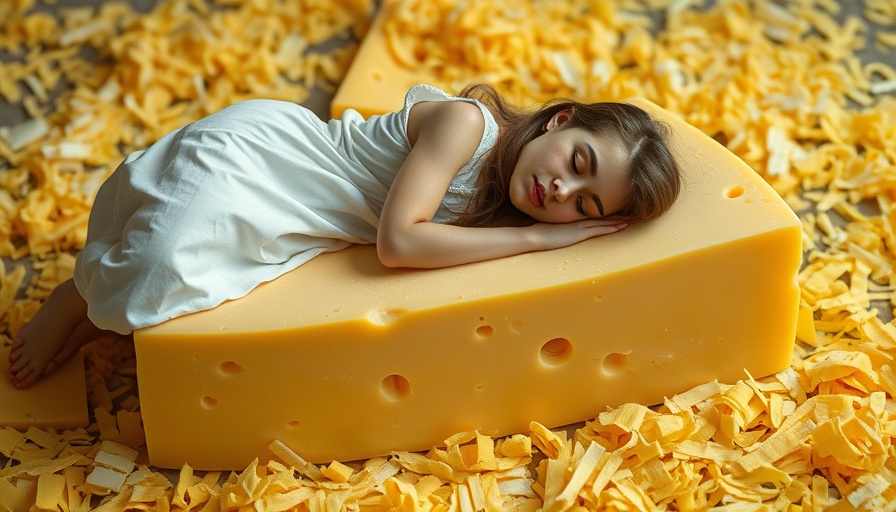
Does Cheese Actually Influence Our Dreams?
For countless generations, folklore has intertwined dietary habits with the nature of our dreams and sleep quality. Classic literature often depicts characters linking their supernatural experiences to what they consumed before bedtime. The iconic scene in Charles Dickens's A Christmas Carol, where Ebenezer Scrooge blames his ghostly visitors on ‘an undigested bit of beef’ and ‘a fragment of cheese’, is just one reflection of this long-standing belief. “There’s more of gravy than of grave about you,” he remarks, signifying a humorous perspective on how our diets can influence our unconscious thoughts.
The Science Behind Nightmares and Diet
As we move towards contemporary discussions, recent studies have delved into the intricate relationship between food and nightmares. The most recent research from the journal Frontiers in Psychology reinforces the idea that eating cheese, particularly at night, could lead to unpleasant dreams. Conducted at MacEwan University in Alberta, this study surveyed over a thousand students, exploring their eating habits, gastrointestinal health, and sleep disturbances.
The results revealed that a significant number of individuals noticed a connection between their diet and the quality of their sleep. Around 25% acknowledged that certain foods had exacerbated their sleep issues, with 22% attributing their nightmares specifically to dairy products like cheese.
Understanding Lactose Intolerance
Interestingly, the study also highlighted that lactose intolerance plays a pivotal role in sleep disruption. Students who suffered from this condition frequently reported more intense nightmares linked to their night-time snacks. According to Tore Nielsen, a psychiatric professor involved in the study, “Nightmares are worse for lactose intolerant people who suffer severe gastrointestinal symptoms and whose sleep is disrupted.” This aligns with the notion that our body's discomfort can significantly affect our dream state.
Foods that Disrupt Sleep Patterns
The survey participants identified various culprits contributing to their restless nights. Aside from dairy, other foods such as desserts (31% of respondents), meats (16%), and spicy dishes (13%) were implicated. Overall, the data suggests a fascinating insight into the direct impact of what we consume before sleeping.
Why Eating Late is a Bad Idea
As healthy lifestyle enthusiasts in the Grand Strand—from Myrtle Beach to Pawleys Island—it's important to consider our habits. Eating close to bedtime can strain our digestive systems and is often linked to more than just sleep disturbances. The foods we select can impact our overall health, mood, and, as research shows, even our dreams. Folks from Ocean Drive to Windy Hill enjoy diverse diets, so being cautious about evening snacking habits can lead to better sleep quality and fewer nightmares.
The Path Forward: Making Healthy Choices
For residents in North Myrtle Beach, Surfside Beach, and the surrounding areas, embracing a balanced diet with an emphasis on when and what we consume can tremendously improve sleep patterns. By limiting high-fat, sugary, and processed foods, while opting for lighter snacks and timing meals better, we might find ourselves not only sleeping more soundly but experiencing pleasant dreams.
Final Thoughts: Mind What You Eat Before Bedtime
In conclusion, as we reflect on how our choices on the dinner plate influence our sleep, it becomes clear that avoiding cheese and heavy foods at night could lead to more refreshing rest. Whether you're in Georgetown, Cherry Grove, or Litchfield Beach, understanding the relationship between diet and dreams can enhance your overall well-being.
As you ponder your evening snacks, consider this: A small change in your late-night diet could very well lead to the sweet dreams you’ve been missing out on. After all, when it comes to restful nights, it’s about more than just counting sheep—it’s about what you have on your plate!
 Add Row
Add Row  Add
Add 





Write A Comment